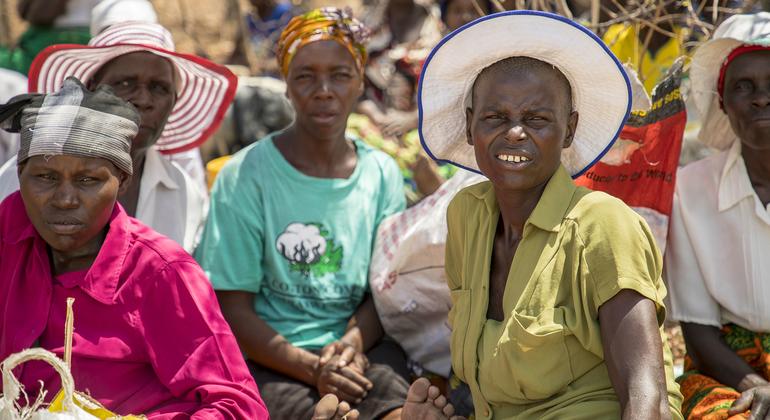The devastating impact of the recent El Niño-induced drought in Zimbabwe has left more than half of the country’s harvest destroyed, putting about 7.6 million people at risk of acute hunger. This crisis comes just two months after UN humanitarians declared Zimbabwe as one of the hunger hotspots where acute food insecurity was likely to deteriorate. The climate crisis in recent years has led to more frequent and intense weather patterns, exacerbating the effects of natural weather events like El Niño.
Officials from the UN and the World Food Programme (WFP) recently visited Zimbabwe to assess the situation and call for more international support for the humanitarian response. The storm’s impact has been devastating, with local authorities declaring a nationwide state of disaster back in April. Figures from the authorities show that 57 percent of people in rural areas of the country are expected to face food insecurity between January and March 2025, which is a peak hunger period.
Other UN reports indicate that civilians in Zimbabwe will need to rely on alternative sources of income, social support, and humanitarian assistance to survive this difficult season. It is projected that humanitarian assistance needs will remain high in many areas of the country until the harvest in 2025 due to limited income-earning opportunities and high food prices. This underscores the urgent need for more international support and funding to address the crisis.
The El Niño-induced droughts have not only affected Zimbabwe but also other South African countries such as the Democratic Republic of the Congo, Madagascar, and Malawi. Each of these nations is facing high levels of food insecurity as a result of the drought. In Zimbabwe specifically, the drought has strained the economy, led to a lack of water supplies, and left more than a fifth of children out of school.
The UN and its partners are working with the Zimbabwean Government to provide aid to civilians affected by the crisis. However, more funding is needed to support these efforts. A $429 million flash appeal was launched in May to aid over 3 million people, but it is only about 11 percent funded at this point. This highlights the critical need for increased international support and funding to address the growing humanitarian crisis in Zimbabwe and other affected countries.
The El Niño-induced drought in Zimbabwe has had far-reaching consequences, impacting not only the country’s agricultural sector but also its economy and access to basic necessities like water and education. The situation is dire, with millions of people at risk of acute hunger and in need of urgent assistance. It is crucial for the international community to come together and provide the necessary support to alleviate the suffering of those affected by the crisis. Only through collective action and increased funding can we hope to address the humanitarian needs of those most vulnerable in Zimbabwe and other affected countries.









